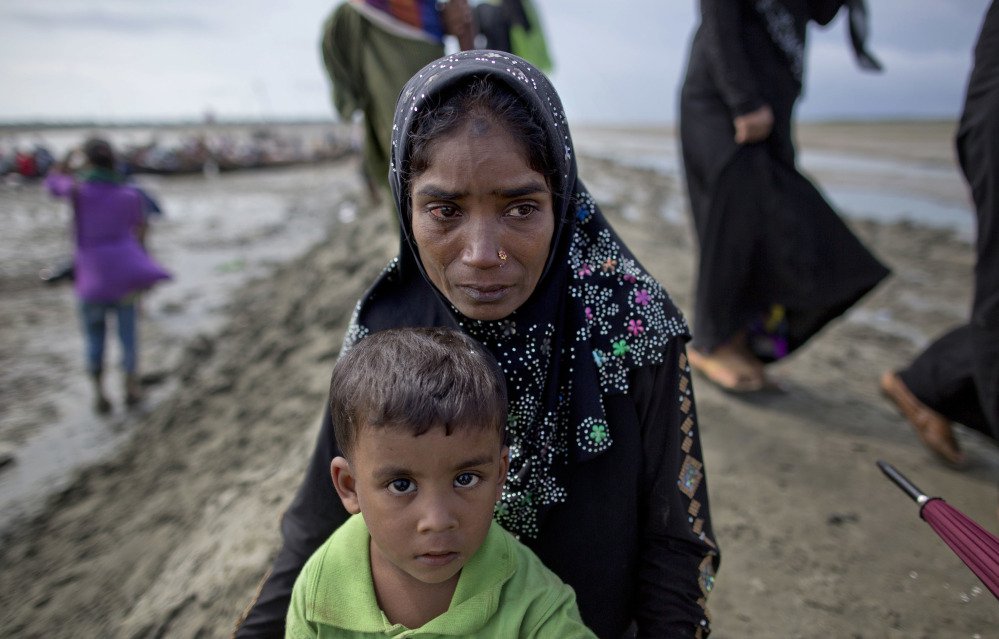The biggest and most ruthless campaign of ethnic cleansing the world has seen in years continues unabated in Myanmar. Since Aug. 25, more than 600,000 members of the Rohingya community have been driven across the border to Bangladesh by the military in Myanmar, which has systematically torched their homes and killed those who resisted. The United Nations says it expects most of the 500,000 remaining Rohingya in the Rakhine state to cross the border in the coming weeks; the military has pushed many of them into camps, to which aid groups and journalists are denied access.
This atrocity is being perpetrated against a despised minority: The Rohingya are Muslims who are regarded by Myanmar’s Buddhist majority as foreign interlopers, even though they have lived in the country for generations. Virtually no one in Myanmar, also known as Burma, has come to the victims’ defense – not even Nobel Peace Prize winner Aung San Suu Kyi, who controls the civilian government, if not the generals. A senior U.N. official, Yanghee Lee, pointed out last week that the country’s revered leader might be the only one who could counter the popular “hatred and hostility” against the Rohingya if she were to “reach out to the people and say, ‘Hey, let’s show some humanity.’ ” But Aung San Suu Kyi has remained silent.
After weeks of hesitation, the United States has finally begun to act against this staggering crime. Secretary of State Rex Tillerson said on Oct. 18 that “the world can’t just stand idly by and be witness to the atrocities,” adding that the military leadership would be held accountable. A few days later, the State Department followed up by pulling the waiver allowing current and former military officials in Myanmar to travel to the United States, and said military units involved would be deemed ineligible for U.S. aid. It called on the government to “facilitate the safe and voluntary return of those who have fled” and “address the root causes of systematic discrimination against the Rohingya.”
That, however, is not enough. So far State has not formally adopted the term “ethnic cleansing” to describe the forced exodus. Tillerson called Myanmar’s army chief on Thursday, but a statement issued afterward referred only to “reported atrocities.” In fact, as Sen. Benjamin Cardin, Md., the ranking Democrat on the Foreign Relations Committee, has said, what is occurring is “genocide” – and the U.S. response should be proportionate.
Myanmar was something of a pet project for the Obama administration, which lavished attention on the regime and lifted long-standing sanctions after it held a democratic election. It’s now clear that those who questioned whether President Barack Obama acted prematurely in removing the remaining sanctions before leaving office were correct. President Donald Trump, who seems to take a visceral pleasure in reversing Obama’s legacies, would be right to do so in this case. Senior military officials in Myanmar should be targeted with asset freezes, and all business with the military and its affiliates should be suspended.
Trump has yet to speak out about the assault on the Rohingya, though it is the most serious human rights crisis to occur so far in his presidency. His upcoming visit to Asia, during which he will attend a summit of Southeast Asian nations that includes Myanmar, provides him an opportunity to show he will not ignore crimes against humanity.
Editorial by The Washington Post
Send questions/comments to the editors.



Comments are no longer available on this story